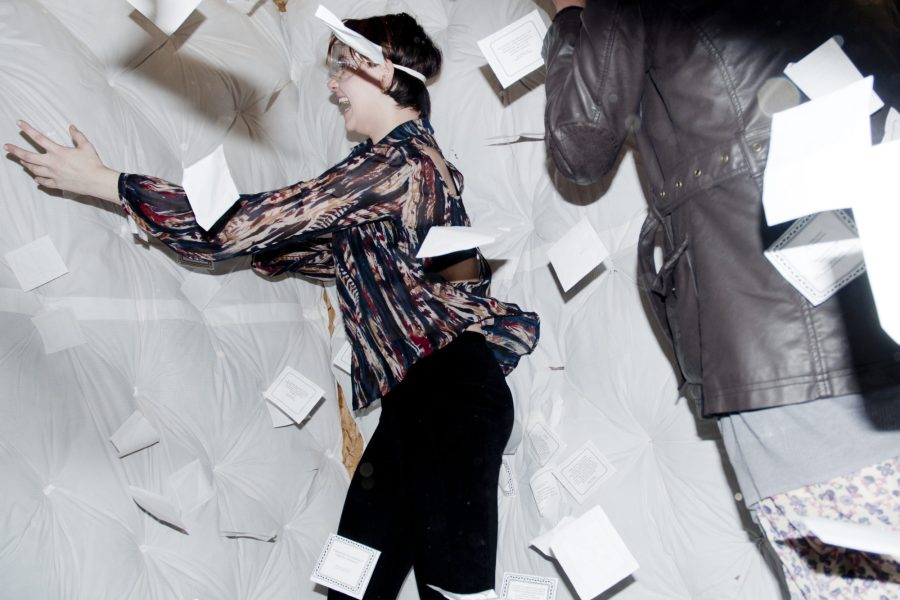What is the value of money in a society that is becoming increasingly hostile to its worth? Ruth Beale and Amy Feneck have been talking to economists, statisticians, bankers, social historians and the public to understand how the financial world might look in the future. Charting the history of money from the Georgian economist Adam Smith to contemporary theoretician Charles Eisenstien who propounds the theory of Gift Culture, the artists ask how we, as individuals can directly change the way our economy is valued.
What have you been up to in the gallery?
We have created an alternative, moneyless economy within the space inspired by Robert Owen’s Equitable Labour Exchange. We have had some great swaps so far ranging from street dance to bicycle repairs.
You are also running a study group.
We have been hosting informal study group meetings addressing the topic of money every Saturday between 11am–12noon. The study group’s aim is to unpick the mystery of money for the individual negotiating day-to-day life in neoliberal capitalism.
The stated aims of the study group are:
To think about money – what it means and how it works
To examine both historical precedents and contemporary experience
To promote independent and non-hierarchical learning
To think about how we might engage and intervene with capitalism
Do you pick a specific topic to talk about?
The one last Saturday focused on ‘Money and human behaviour: debt and desire’. We are using books loaned by the Working Class Movement Library in Salford, and inviting ‘discussants’ with specialist knowledge.
Next Saturday we will be looking at what alternative economies exist, or could exist. We are interested in the idea of anti-growth as a progressive way of thinking about how an economy could work, how anti-growth could be more sustainable – perhaps especially in relation to climate change for example.
What has been the most interesting aspect of the Study groups?
The input from the participants. For example we have had an ex-City-worker and a political economics academic, both of whom were excited about the quotes and material we had pulled out, but were also able to offer their own perspective.
Have there been any frustrations?
It’s a rush to get the material ready in time, and ideally we’d like more time to develop an audience beyond an art context.
Who is William Kherbek and why did you want him to participate?
William Kherbek taught an Economic Literacy course at the Bank of Ideas, part of Occupy London. Although we are doing a lot of reading and researching around topics of discussion, we wanted at least one person present at the study groups who could act as a ‘discussant’ – someone who had particular knowledge, (practical or academic) of economics. William is great because not only is he interested in informal or non-institutional types of learning/education, he is self-taught in economics – something he developed through his activism, although he did study probability theory, statistics and calculus at university. But alongside that, his knowledge is broad ranging and he doesn’t necessarily teach with an overt political agenda.
The cost of putting on Now I Gotta Reason is written up on the gallery’s walls. Do you think financial transparency of an exhibition is a good idea?
It’s interesting to address this within the context of an exhibition about useful art as it throws up lots of questions about what art is and how it’s valued. Just doing it highlights issues about unpaid labour, collective decision-making, who controls the budget and what constitutes work – we’re not sure if this is properly represented as yet.
What will the study group produce at the end?
We are making a poster/booklet with An Endless Supply that will hopefully be a tool for others to make their own study group about economics.
